Sitting in class on Wednesday morning I was surprised to hear the name Pinochet mentioned. Pinochet was the dictator of Chile from 1973 until 1988 and was one of the most oppressive dictators in South America, but how does this relate to Tunisia? Apparently Ben Ali was given the nickname “Pinochet on the Mediterranean.”
After learning more about Ben Ali and his regime, this nickname seems accurate. Ben Ali was extremely repressive and freedom of speech was severely restricted while he was in power. Yet at the same time, Tunisia was a progressive country and still is compared to many other countries in the region.
The SIT program in Tunisia is devoted to dissecting the revolution and understanding what happened. An exciting topic, especially considering democracy is currently being established in Tunisia. That being said, this blog will be dedicated to a brief history of Tunisia, as well as what a typical day of class is like in Tunisia.
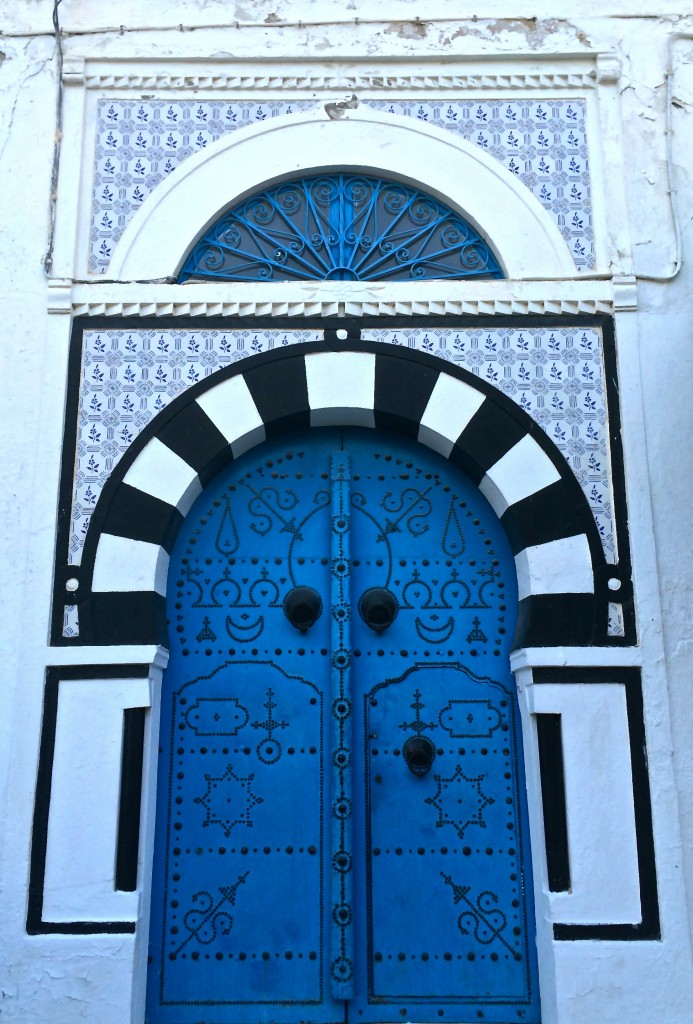
The first week I took a taxi to class, along with a few other students. Taxis in Tunisia are super cheap and the ride to school is only about five minutes. However, this week my friend and I decided to walk. Since she lives right next door we met outside at 7:45. We walk slowly to avoid sweating profusely and usually arrive to class 50 minutes later. It sounds like a long walk, but it’s a nice way to wake up.
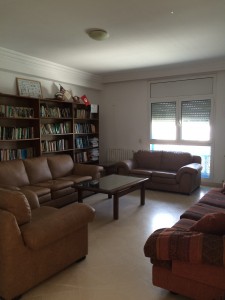
The SIT center has a series of rooms. There is a kitchen were we occasionally cook lunch, a hangout room, the main classroom, various smaller classrooms for language instruction and even a few bedrooms in case we want to take a nap in between class.
Class starts at 9:00am and lasts until around 11. Morning class usually consists of a lecture. We have had many interesting speakers so far. They have all talked about the different parts of the revolution.
One of my favorite speakers was the one we had last Wednesday, Larissa. She is the one who mentioned that Ben Ali was nicknamed the “Pinochet of the Mediterranean.” Her lecture focused on the cult of personality of Ben Ali. If I had come to Tunisia before the revolution, I would have noticed giant posters all over the country of Ben Ali. Although he was in his 70s, in every poster is hair is jet black, he is usually wearing a suit, and his hand is usually over his heart.

This particular poster of Ben Ali was actually put up after his fall. A group of activist wanted to see what would happen if they put up a poster of Ben Ali. As people walked around La Goulette and took notice of the poster they became very upset because they thought Ben Ali had come back. People began to tear the poster down. The activist who placed the poster there saw this as a success because it meant the people did not want Ben Ali back.
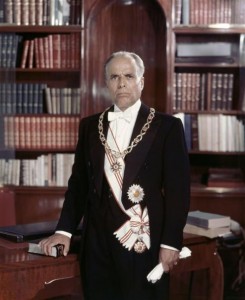
From the brief conversations I have had with my host family about politics, it seems they are happy the revolution took place. Although one of my host brothers told me that directly after Ben Ali fell the country was unstable and he was concerned, but now he is happy with how things are. I also spoke to my host dad a bit about the situation. His response was that he loved Bourguiba. This is understandable since Bourguiba did modernize Tunisia, although he was oppressive towards the end of his time in power and declared himself president for life. I was not able to ask my host dad about his thoughts on the revolution due to language barriers, but maybe we can have that conversation in a month or so.
After lecture finishes, we have about a two hours break until class in the afternoon. This gives us an ample amount of time to cook lunch or go somewhere to eat. we get a daily stipend from SIT for food and transportation so I haven’t had to spend any of my own money so far. The fruit here is amazing and super cheap! I tried prickly pear for the first time and really liked it. Although the first time I ate it I was a bit confused about what to do with all the seeds and kept picking them out. Now I’ve become a pro and I eat all the seeds!
A few afternoons a week we have Arabic class in the afternoon. I am in the intermediate level. The class is two hours long, but I wish it were longer! Arabic is such a challenging language and I want to learn so much. We also have Tunsi once a week as well. Tunsi is the Tunisian dialect of Arabic and the vocabulary is quite different from Modern Standard Arabic, which is what is taught in schools and what I have learned.
On the days we don’t have language classes in the afternoons we usually have excursions. Last week we visited the U.S. embassy and yesterday we visited a school for the handicapped where we will begin volunteering next week.
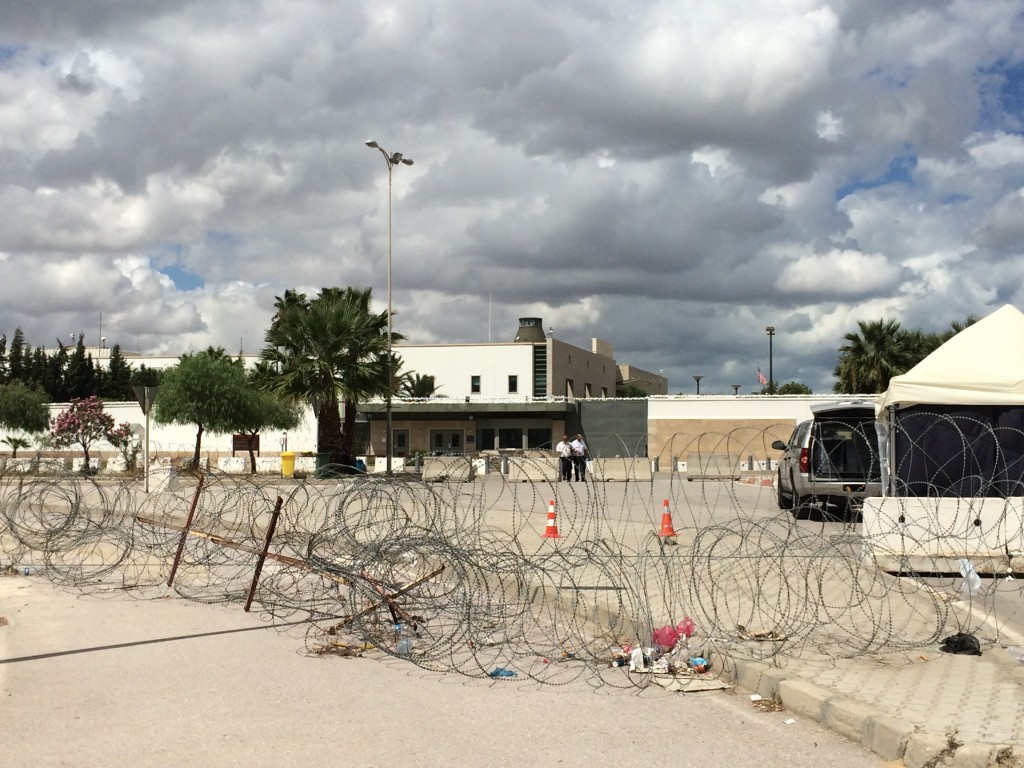
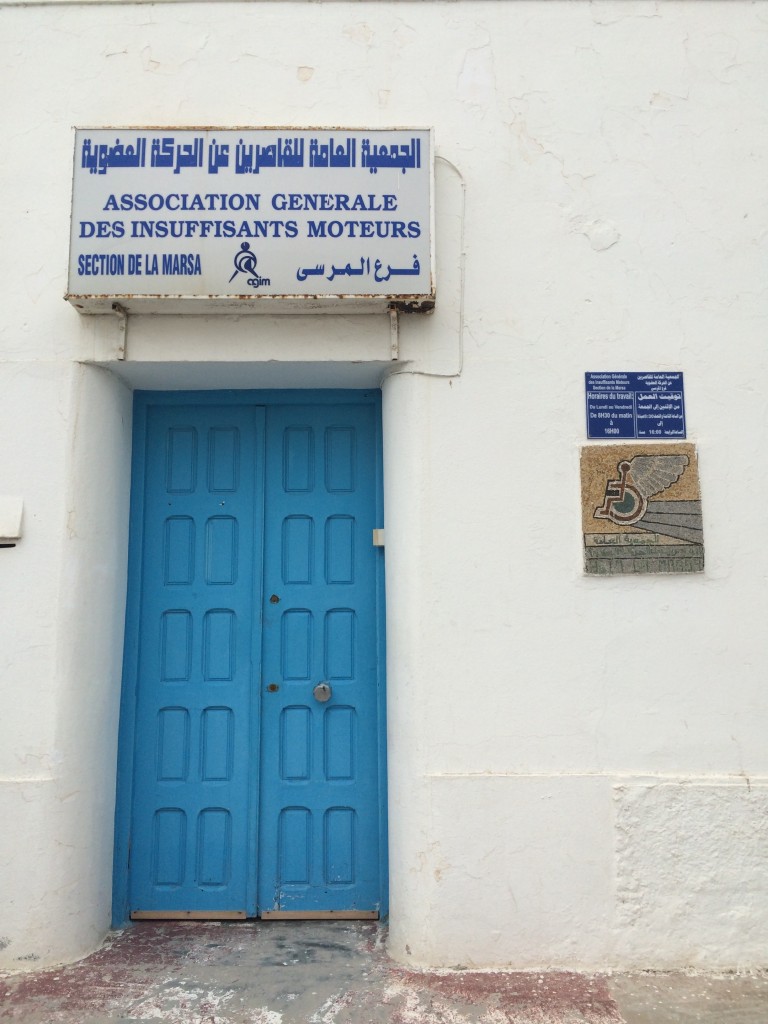

After we are done with class for the afternoon we usually go to a cafe for coffee or tea. Cafe culture is very big in Tunisia and every drinks numerous cups of coffee or tea a day. The coffee is very strong, but I’m beginning to like it. The tea is mint tea and is very delicious, although it has more sugar than I would prefer.
After a nice coffee break I usually head home to spend some time with my host family. I’ll work on homework for a bit and watch Turkish and Egyptian soap operas. I can usually understand about half of what is happening. my family is pretty relaxed in the evenings but occasionally some family member will come over and we’ll all eat together.
So there you have it. A snapshot of my daily life in Tunisia. Stay tuned for a blog about Carthage which we’ll be visiting on Friday!
Besleema!

